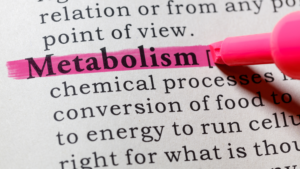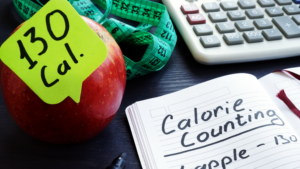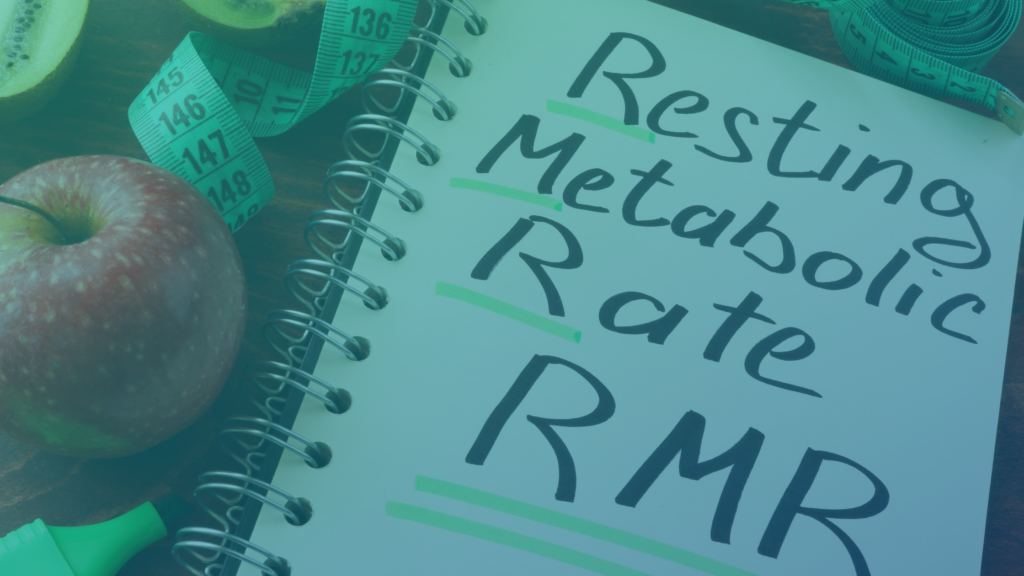The science in Obesity Medicine is still very much in its infancy – primarily due to the fact that Obesity wasn’t declared a chronic disease by the Canadian or American Medical Associations until 2015.
Now with this recognition and understanding, research and funding have begun to increase. This is great in one sense; however, it has been a long time coming and still has a hell of a long way to go for the individuals that have been living with Obesity up to this point.
Now for me (who has an entrepreneurial spirit, is not a big fan of rules, possible high functioning ADHD, and as my mother has stated, ‘tends to believe his way is the best way’) this infancy in Obesity science perfectly satisfies my values for innovation, outside of the box thinking, and living in the grey! It all is….squirrel? Why do we only have four fingers and one thumb? What would happen if we had a 6th digit? Sorry, I seem to have lost my train of thought.
 Anywho, kidding aside, I feel that many clinicians in this space are ‘swinging to the fences.’ There are many different models and methods out there, and in reality, everyone is doing things a little bit differently to see what works. All the while, the science continues to evolve and helps to re-shape or modify our practices as we need to find the best treatment options and modalities for our patients! That is exactly what I have been observing in terms of today’s topic.
Anywho, kidding aside, I feel that many clinicians in this space are ‘swinging to the fences.’ There are many different models and methods out there, and in reality, everyone is doing things a little bit differently to see what works. All the while, the science continues to evolve and helps to re-shape or modify our practices as we need to find the best treatment options and modalities for our patients! That is exactly what I have been observing in terms of today’s topic.
In particular, one area that I have been watching evolve over the past few years is the science around ‘metabolic adaptation’ or ‘adaptive thermogenesis.’ Today, I want to talk about one study specifically that has had a lot of influence over the years. Still, the more recent literature might be pointing in a different direction.
But First, What Is Metabolic Adaptation?
As an individual loses weight, we see a slowing of their Resting Metabolic Rate or RMR. RMR is how many calories an individual burns by just existing and resting, nothing else. In the phenomenon of metabolic adaptation, there is a reduction in RMR that is greater than would be expected based on measured changes in body composition. The English translation – when someone loses weight and reaches a weight of 140lbs, their RMR will be lower than that of someone who weighs the same 140lbs but did not lose weight to get there.
Metabolic adaptation is thought to occur in order to counter weight-loss – because our body is kind of like a needy stage 5 clinger and wants to hold onto as much energy as possible in case the zombie apocalypse happens. Which, based on 2020, is very well possible at this point. One of the significant problems with metabolic adaptation is that it may persist for a number of years afterwards, even after an individual has gained all their weight back and then some.
The Biggest Loser Studies

Kevin Hall and friends published a study in 2012 that looked at competitors from the reality TV show called the Biggest Loser. Remember that one? Where individuals that had Obesity are put on ridiculously low-calorie diets, intense exercise regimens, and yelled at by jacked personal trainers? I won’t bore you today with my soapbox on how dumb that show was and how dumb I think reality TV is in general. Let’s get into the study.
So Kevin Hall and his colleagues in 2012 demonstrated that a significant amount of metabolic adaptation had occurred in 16 individuals that participated in the competition and had lost a large amount of weight. Six years later, they wanted to know if this adaptation persisted in these individuals and correlated with weight regain.
In a follow-up study six-years after the Biggest Loser competition, Kevin Hall and friends did confirm their hypothesis. They recruited 14 out of the 16 original participants and measured their RMR and body composition changes. They did a whole bunch of super interesting tests to determine each individual’s resting metabolic rate, total energy expenditure and physical activity energy expenditure. Then they did math things (I won’t attempt to explain the math since I failed first-year calculus), and voila, they got their data set.
They originally found that immediately after the Biggest Loser Competition the participants lost on average 58.3 ± 24.9kg. After six years, nearly all subjects regained a significant amount of weight they lost during the competition. Five subjects were within 1% of their baseline weight prior to beginning the competition. Interestingly, there was one subject that did not regain any weight. They found that 80% of the weight changes were due to an increase or decrease in fat mass.
 What does that mean In terms of RMR? Before the Biggest Loser competition, the participants’ baseline RMR was 2607±649cal/day, which decreased to 1996±358cal/day after the competition. Six years after the competition, after a significant amount of weight was regained, the average RMR was 1903±466cal/day. Now, this is kind of mind-blowing! Six years later and 5 of the subjects had regained almost all of their weight, and on average, the RMR was essentially the same as it was post-competition?!
What does that mean In terms of RMR? Before the Biggest Loser competition, the participants’ baseline RMR was 2607±649cal/day, which decreased to 1996±358cal/day after the competition. Six years after the competition, after a significant amount of weight was regained, the average RMR was 1903±466cal/day. Now, this is kind of mind-blowing! Six years later and 5 of the subjects had regained almost all of their weight, and on average, the RMR was essentially the same as it was post-competition?!
Even worse, the individuals that lost the most weight had the greatest amount of sustained metabolic adaptation. Their mean RMR was now ~500cal/day lower than expected based on their body composition and age. Talk about your body giving you the ultimate middle finger. No wonder these individuals gained weight. It would be extremely challenging to lose weight because they would have to create a massive calorie deficit to overcome the metabolic adaptations. Which (guess what!) could reduce even further with another weight-loss attempt. Sometimes the human body is a bit of an asshole.
Final Thoughts
I know what you are probably asking: ‘So our body does not want to lose weight? And if we do happen to lose weight, we are royally screwed anyways due to this metabolic *middle finger* adaptation? W.T.F?!’
Now give me a second here… As I have discussed previously, losing weight is an evolutionary disadvantage as 30,000 years ago, weight loss could mean, well, death. The human species has come a long way, but evolving to adapt to our obesogenic environment has not been something we have done successfully or at all. So yes, our body is continually adapting and will make your weight-loss journey more difficult, but does that mean your metabolism is entirely shot forever?!
Not necessarily! As some newer research is showing a different conclusion.
‘So Dr. Dan, what is that conclusion?!’
Well, I am totally going to be that guy and say this is Part 1, and you will have to stay tuned for Part 2. So sign up below to make sure you are on the mailing list and catch it once released!
I know, I know. First he is a bit of an ass, then he asks for our emails? Yes, and I will not argue any part of that statement. Chat soon.






